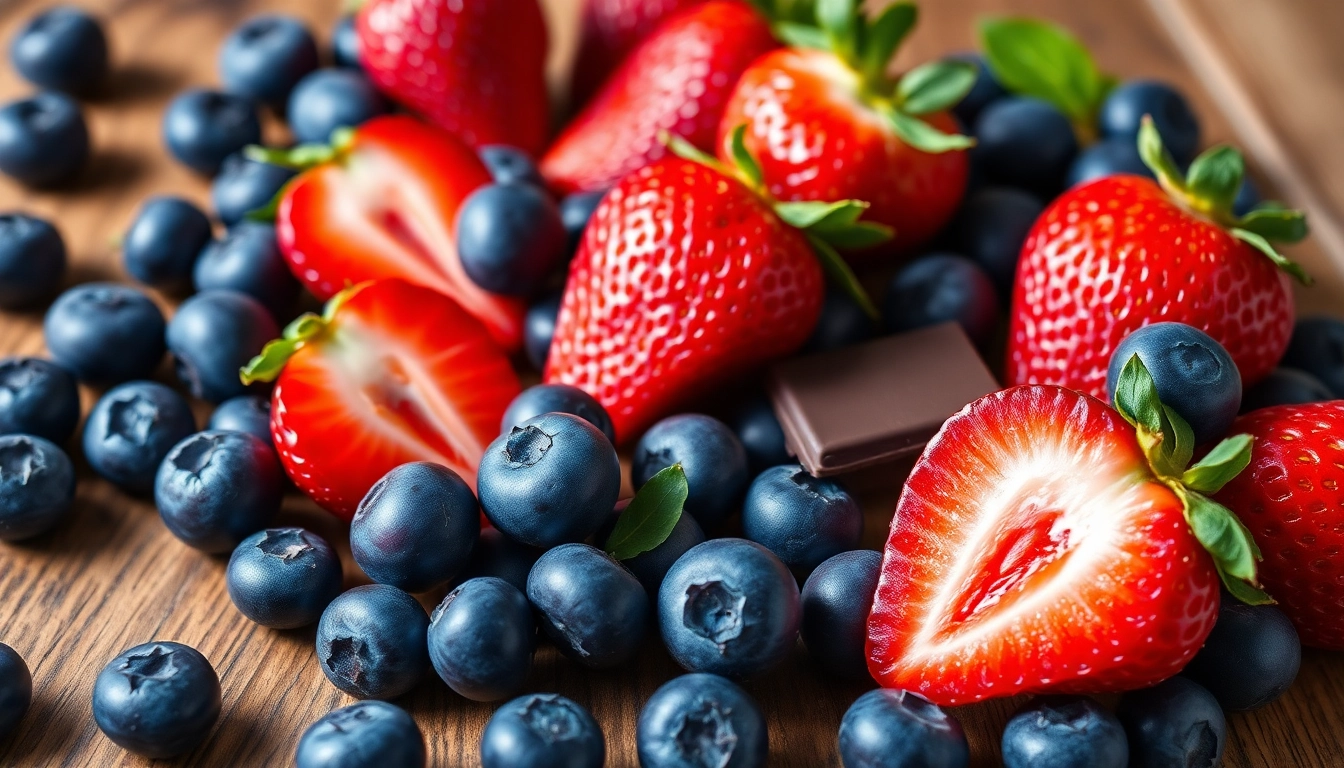Understanding Antioxidants: What They Are and How They Work
In our quest for health, nutrients like vitamins and minerals often take the spotlight, but antioxidants deserve equal attention. These essential compounds play a key role in health maintenance, offering protection against the damaging effects of free radicals. With the increasing prevalence of chronic diseases and aging-related conditions, understanding antioxidants and their functions is critical for making informed dietary choices.
The Role of Antioxidants in Neutralizing Free Radicals
Free radicals are unstable molecules formed during metabolic processes, as well as through environmental factors such as pollution and UV exposure. They can damage cells, leading to oxidative stress, which is linked to various health issues, including cancer and heart disease. Antioxidants combat this by neutralizing free radicals. When antioxidants donate an electron to a free radical, they stabilize it, effectively preventing further cellular damage. This protective mechanism highlights their importance in maintaining overall health and longevity.
Types of Antioxidants: Natural vs. Synthetic
Antioxidants can be classified into natural and synthetic categories. Natural antioxidants are found in a wide array of fruits, vegetables, whole grains, and other food sources. Examples include vitamin C, vitamin E, flavonoids, and carotenoids. These compounds work synergistically in complex food matrices, enhancing their beneficial effects.
Synthetic antioxidants, on the other hand, are manufactured and often added to processed foods to extend shelf life. Common examples include BHT (butylated hydroxytoluene) and BHA (butylated hydroxyanisole). While some studies suggest that synthetic antioxidants can be effective, they don’t always replicate the holistic benefits found in natural sources.
Common Sources of Antioxidants in Your Diet
To enhance your antioxidant intake, focus on incorporating various colorful foods into your meals. Here are some potent sources:
- Berries: Blueberries, strawberries, and blackberries are rich in anthocyanins, powerful compounds that provide impressive antioxidant capacity.
- Dark Chocolate: With its high flavonoid content, dark chocolate (70% cacao or more) is a delicious source of antioxidants.
- Green Vegetables: Spinach, kale, and broccoli are packed with vitamins C and E, along with other carotenoids.
- Nuts and Seeds: Walnuts and sunflower seeds provide ample vitamin E and selenium.
- Spices: Turmeric, cinnamon, and ginger are rich in antioxidant compounds that can easily enhance both flavor and health benefits in dishes.
Health Benefits of Antioxidants: Boosting Immunity and Beyond
The health benefits of antioxidants extend far beyond merely neutralizing free radicals. Their consumption is associated with a wide range of health advantages.
Aiding Cellular Protection and Longevity
One of the primary benefits of antioxidants is their ability to protect cellular structures from oxidative damage. This includes not only the cells themselves but also crucial components like DNA and lipids. Research has suggested that patterns of high antioxidant intake correlate with lower rates of age-related diseases and may enhance longevity.
For example, studies indicate that individuals who consume antioxidant-rich foods regularly have a lower incidence of cardiovascular diseases, neurodegenerative disorders, and certain cancers. The protective effect of antioxidants fosters healthier cellular function, thus promoting longevity.
Antioxidants and Heart Health: What the Research Says
Heart disease remains a leading cause of death globally, and antioxidants could play a protective role. Research has shown that antioxidants may support heart health by preventing the oxidation of low-density lipoprotein (LDL) cholesterol—the type that contributes to heart disease. When LDL cholesterol becomes oxidized, it can lead to plaque buildup in arteries, increasing the risk of heart attacks and strokes.
Furthermore, beneficial antioxidants such as flavonoids found in fruits, red wine, and tea have been linked to improved endothelial function, reduced blood pressure, and enhanced circulation. These effects, in combination, offer a strong protective benefit against cardiovascular conditions.
Impact on Aging and Skin Health
As we age, the natural decline in our antioxidant defenses makes us more susceptible to oxidative stress. This imbalance is a significant contributor to the aging process and various age-related diseases, including skin degeneration.
Research shows that topical application of antioxidant-rich compounds can improve skin appearance and health. For instance, vitamin C and E, along with coenzyme Q10, are notable for their skin-protective properties, promoting collagen synthesis, reducing UV damage, and enhancing the overall texture and elasticity of the skin.
Incorporating Antioxidants into Your Daily Routine
Integrating antioxidants into your lifestyle can be simple and delicious. Here are some practical strategies to make antioxidants a cornerstone of your daily routine.
Top Antioxidant-Rich Foods to Include
To effectively boost your antioxidant intake, consider a dietary strategy that includes the following foods:
- Fruits: Include a variety of berries, apples, and pomegranates. Fresh or frozen, they are great additions to breakfast smoothies or snacks.
- Vegetables: Aim for leafy greens, bell peppers, carrots, and beets. They can be added to salads, stir-fries, or roasted for side dishes.
- Whole Grains: Quinoa, brown rice, and oats provide antioxidants along with essential fiber.
- Herbs and Spices: Fresh herbs such as parsley and basil are excellent options, as are spices like turmeric and cinnamon, which can easily be integrated into various recipes.
Delicious Recipes Packed with Antioxidants
Here are a few recipes to help you enjoy the benefits of antioxidants:
Berry Smoothie Bowl
Ingredients:
- 1 cup of frozen mixed berries
- 1 banana
- 1 cup of spinach
- 1 cup of almond milk
- Toppings: sliced fruits, nuts, chia seeds
Instructions: Blend all ingredients until smooth. Pour into a bowl and add your favorite toppings.
Quinoa Salad with Spinach and Nuts
Ingredients:
- 1 cup cooked quinoa
- 2 cups fresh spinach
- 1/2 cup diced bell pepper
- 1/4 cup walnuts or almonds
- Dressing: olive oil, lemon juice, salt, and pepper to taste
Instructions: Combine all salad ingredients and drizzle dressing over the top before serving.
Choosing the Right Supplements: A Cautionary Tale
While obtaining antioxidants through diet is ideal, some people consider supplements. However, it’s important to approach this avenue cautiously. Research has shown that antioxidant supplements may not offer the same protective benefits as those found in food. In some cases, they can even be harmful when consumed in excess.
Therefore, it’s generally advisable to focus on obtaining antioxidants from a diverse, whole-foods diet while discussing supplementation with a healthcare provider, especially for individuals with specific health conditions or those who are pregnant.
Myths and Misconceptions About Antioxidants
With the growing interest in antioxidants, several myths have emerged that can mislead consumers. Here, we aim to debunk some of these misconceptions.
Debunking Common Misbeliefs
A popular myth surrounding antioxidants is that all antioxidants are created equal. In reality, the effectiveness of an antioxidant can vary depending on several factors, including dosage, bioavailability, and the specific oxidative species they are targeting. Some sources may offer superior benefits compared to others.
Another misconception is that taking high-dose antioxidant supplements is always beneficial. Excessive intake can lead to oxidative stress rather than reducing it, demonstrating the importance of moderation and a balanced diet.
The Truth About Antioxidant Supplements
Many people believe that antioxidant supplements can replace a healthy diet; however, this is a misconception. Research indicates that antioxidants work synergistically in food, which is not replicated in concentrated pill form. Whole foods provide a complex blend of nutrients that work together, making them more effective in promoting health and well-being.
Furthermore, some studies have highlighted that high doses of certain antioxidant supplements may increase the risk of certain adverse health outcomes. Therefore, a primarily food-based approach is recommended for maximizing health benefits.
Understanding Antioxidant Interactions with Other Nutrients
Another important aspect of antioxidants to consider is how they interact with other nutrients. For instance, the presence of fats can enhance the absorption of fat-soluble antioxidants such as vitamins A, E, and carotenoids. Moreover, minerals like selenium and zinc support the body’s antioxidant defense systems and can help optimize the effectiveness of other nutrients.
Therefore, it’s vital to maintain a balanced diet that includes a variety of nutrients to see the full benefits of antioxidant consumption.
Measuring Antioxidant Activity: What to Know
Understanding how antioxidants are measured can empower consumers to make informed choices about their health.
Understanding ORAC Scores and Their Significance
The Oxygen Radical Absorbance Capacity (ORAC) score is a method of measuring the antioxidant capacity of foods and supplements. While ORAC scores can provide insight into the level of antioxidants, it’s essential to remember that these scores should not be the sole determinant when assessing food healthfulness.
Highly processed foods might have higher ORAC values, but they often lack the full spectrum of nutrients found in whole foods. Therefore, consider focusing on obtaining antioxidants from diverse, whole, unprocessed foods.
How to Test Foods for Their Antioxidant Content
Various methods exist for analyzing the antioxidant content in foods. However, the complexity of human digestion and absorption complicates measurement. As a consumer, rather than relying exclusively on laboratory tests, prioritize a diverse and colorful diet which naturally increases your antioxidant intake.
The Future of Antioxidant Research and What Lies Ahead
Antioxidant research continues to evolve, with ongoing studies focusing on the long-term effects of antioxidants on aging, chronic diseases, and overall well-being. Future insights will likely delve deeper into the mechanisms through which antioxidants exert their effects and explore novel antioxidant compounds both from natural sources and synthetic formulations.
As medical science advances, we look forward to an expanded understanding of how dietary antioxidants can be leveraged to support health and combat chronic disease effectively.



